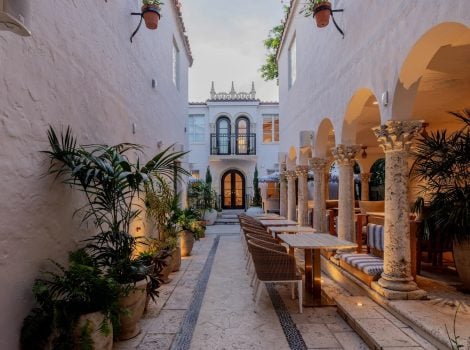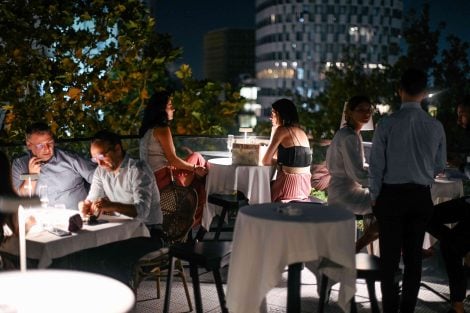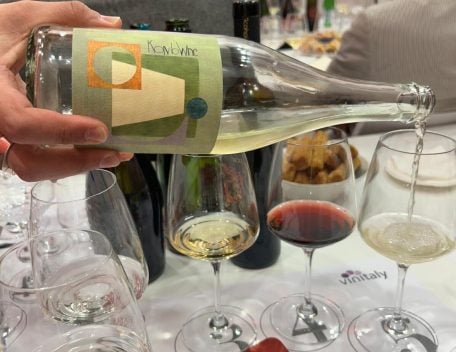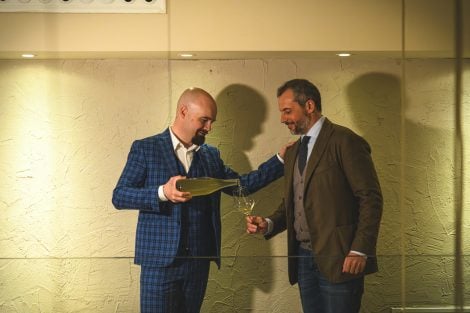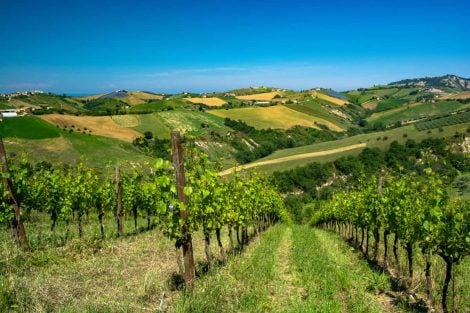by Titti Casiello
Via Bausan, in Naples, has the charm of discretion. A cul-de-sac, it sits just steps away from one of the city’s bustling nightlife hubs, yet here, the pace slows, softened by the absence of honking horns and traffic noise. The same feeling extends inside Persika, a delightful little restaurant where the seamless transition between the outdoor and indoor spaces is immediately noticeable. A single environment where intimacy and warmth reflect in details of warm colours and soft lighting.
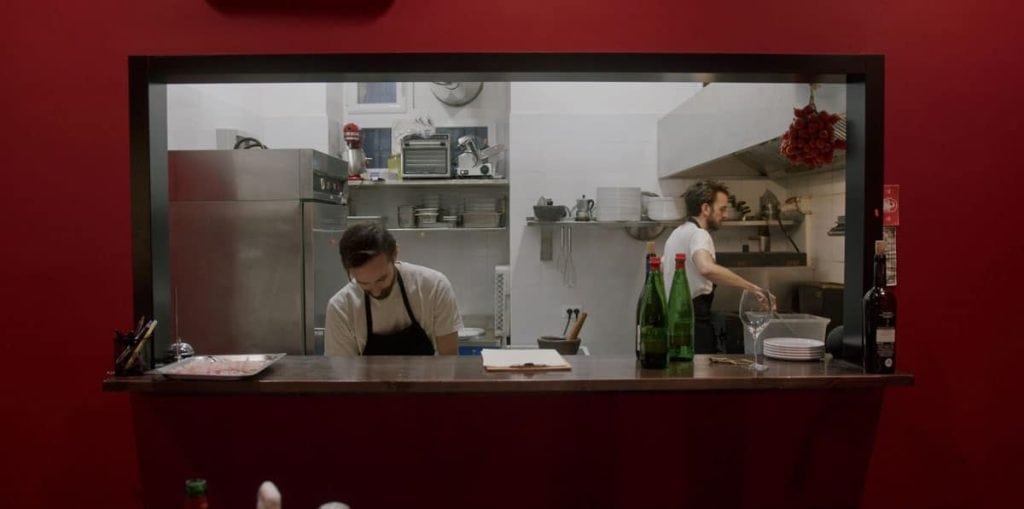
A hidden dining room in the heart of the nightlife
Few paintings adorn the walls of a minimalist, relaxed dining area, separated by a stone arch. Beyond it, a small open kitchen reveals Joar Torch and his team, almost like a living painting. The tension of a full dining room and the constant flow of orders seems almost imperceptible, with everything moving in an exquisite Nordic aesthetic rigour—understandable, given that Joar, who has just turned thirty, spent the first twenty years of his life in Stockholm.
"But every year, I would come to Italy to spend the summer in Cilento, in Pisciotta. One year, I even lived there permanently—I attended fifth grade there," the young chef recalls.
Joar has no Cilentan grandparents or great-grandparents, nor inherited homes from distant relatives. "My mother, of Swedish origin, has simply always been in love with Italy, especially Cilento. Even at home in Stockholm, she always cooked Italian food."
Joar’s ambition to become a chef grew through his experiences in Italy: between "the cavatelli alla sorrentina at Osteria Belvedere and the seafood dishes prepared by Angiolina in Pisciotta," he fuelled his curiosity, asking questions, learning, until he landed an internship at the three-Michelin-starred Frantzén in Stockholm.
Stockholm–New York–Pisciotta
Not long after, he flew to New York, to Hearth in the East Village. "At that time, I wanted to learn as much as possible, so I started with the fundamentals, studying and researching the highest quality ingredients." But it was at Estela in Soho that he shaped his culinary style: "I was constantly searching for something I had never seen before. New flavours to recreate through new techniques."
And yet, the memories of those Italian summers, of childhood meals filled with laughter among friends, the scent of pasta dishes prepared by his mother, and endless days by the sea, called Joar back—to Pisciotta.
The town’s small square, accessible through a maze of stairs and charming alleys, was the perfect place at the perfect time. "With Bruno Liguori, a lifelong friend from my Cilento summers, we opened Malabar. The best local ingredients, cooked simply and honestly—that was our cuisine, and within months, it became a gastronomic landmark for both locals and tourists."
But Pisciotta, like most Cilentan villages, "sleeps" for several months a year, only coming alive in the summer. "I wanted a bit more stability," Joar explains. And so, with his brotherTimon —who already had significant experience in the wine industry—the idea took shape: to leave everything behind and start anew in Naples.
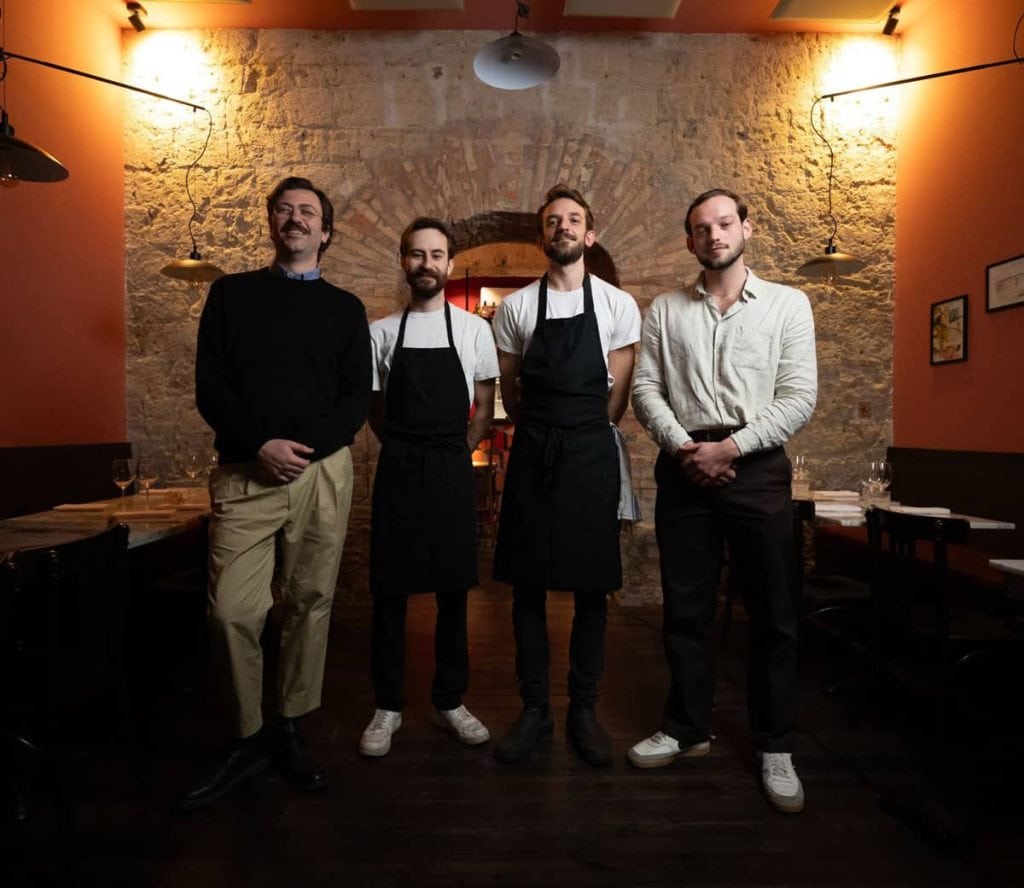
A new chapter in the heart of Naples
Bruno was already there, waiting for them. "This time, the idea was slightly different—still using local ingredients but in a more original, unexpected way, something that could surprise without overwhelming."
Joar avoids clichés and rhetoric, focusing instead on treating ingredients with intelligence, blending local traditions with the freedom to explore. And so, the culinary vision behind Persika was born: "A word that in Swedish means ‘peach’—just like in Neapolitan dialect."
In the mornings, Joar personally selects the seafood: "At Porta Nolana, behind Naples’ central station, there's always Pino or Ciro advising me on the freshest catch," he says. Vegetables come mainly from an organic farm in the Valle Caudina, while for meat, he goes as far as Benevento to Giacomo Buonanno’s butcher shop: "I try to choose only local pasture-raised breeds… Eating well is an act of care, for ourselves and our guests."
Timon’s search is just as meticulous—his wine list is built around small artisanal producers, with a philosophy of good drinking that never veers into extremes. Every evening, he offers many of his selections by the glass. Bruno, on the other hand, weaves everything together, creating the warm hospitality that makes each dining experience memorable.
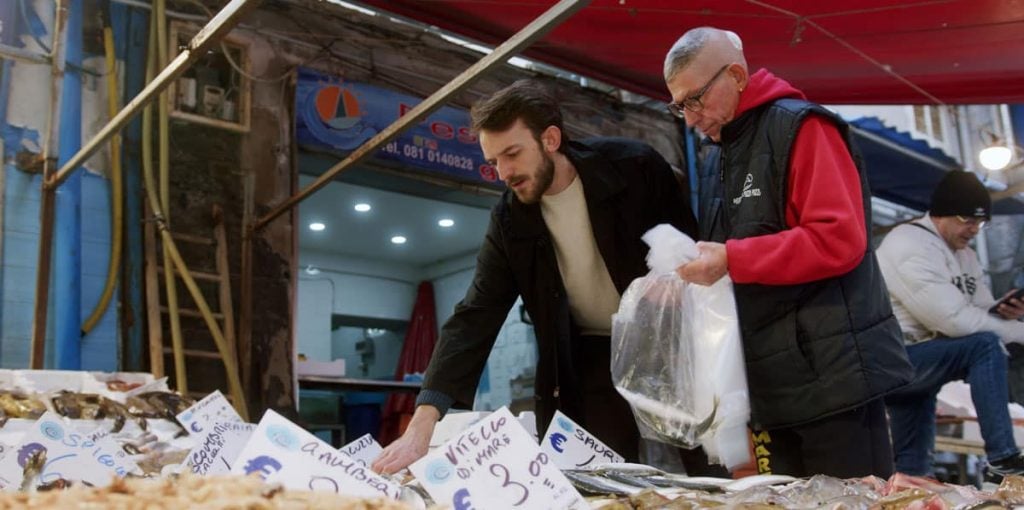
A free-spirited, unpredictable cuisine
Persika is unlike any other place in Naples—a culinary identity that is aware of its roots but detached from the rhetoric of tradition. The menu is an intriguing melting pot, blending creative ideas with the freshest market offerings. It consists of well-balanced dishes, clear, quick, and changing almost weekly. "I like to cook freely."
So, in some cases, the sea of the Gulf of Naples meets France, like in the crostino with smoked bluefish, crème fraîche, cucumber, spring onion, and mint. In others, it merges Calabria’s coast with Piedmont’s mountains, as seen in the grilled and marinated Tropea onion with tonnato sauce.
Joar’s cuisine is not extreme
The menu leans toward a limited carnivorous approach, "with a strong emphasis on vegetables and a bigger role for fish—also because that’s how I eat personally." But Joar is no extremist: "Even when choosing to eat meat, what matters is that it comes from high-quality sources."
"We’d rather spend more to source meat from animals that have been well-fed, pasture-raised, and not from industrial farms," he says. To balance costs, "we opt for less prestigious cuts, like offal, or underappreciated fish such as anchovies, mackerel, and bluefish."
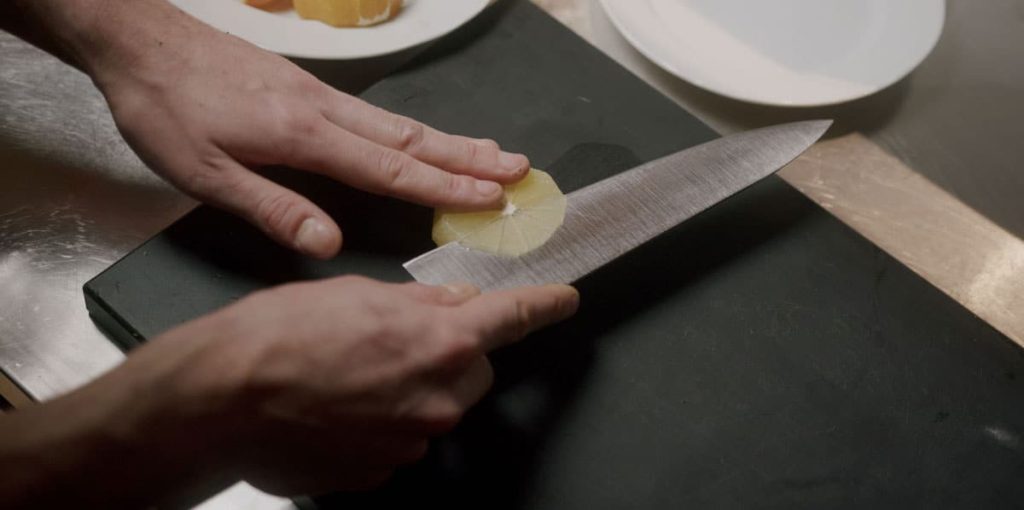
Affordable pricing
This way, the quality of ingredients is never compromised, creating a balance between excellence and fair pricing, making Persika an economically accessible place—"but most importantly, a good one," Joar jokes. His approach to gastronomy is more devoted to flavour than trends: "The idea that something is better just because it’s different doesn’t belong in my kitchen." To the trend of exotic and expensive dishes, he responds with local products: "We live in the land of the best lemons in the world, yet we marinate fish with an overpriced, juiceless lime."
A new approach to dining
"Bringing together different skills—that’s perhaps the key strength of a restaurant," and Joar, Timon, and Bruno move with an elegance that goes beyond aesthetics; it’s present in their gestures, in how they interact with guests, and in the way they shape the Persika experience.
"Here, everyone is essential," says Bruno, as the kitchen bell rings with orders ready to be served. He’s already on his way to Table 8, with glasses ready for Timon to pour the next selection.

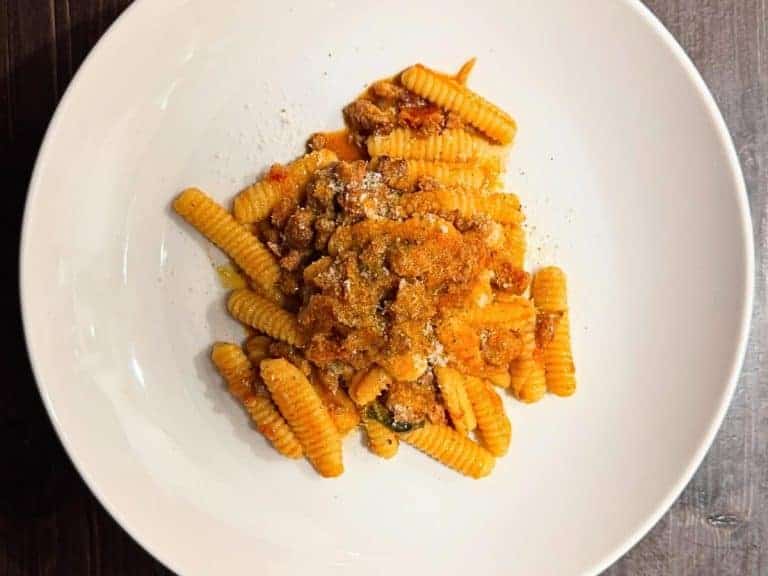
 "The universal wine glass? It doesn’t exist. Only shortcut-lovers believe in it." So says Maximilian Riedel
"The universal wine glass? It doesn’t exist. Only shortcut-lovers believe in it." So says Maximilian Riedel The 15 Ribolla Gialla wines with the best quality-price ratio chosen by Gambero Rosso
The 15 Ribolla Gialla wines with the best quality-price ratio chosen by Gambero Rosso A strong start for Italian wine exports in 2025. In January, the stockpiling effect in the US ahead of tariffs proves decisive
A strong start for Italian wine exports in 2025. In January, the stockpiling effect in the US ahead of tariffs proves decisive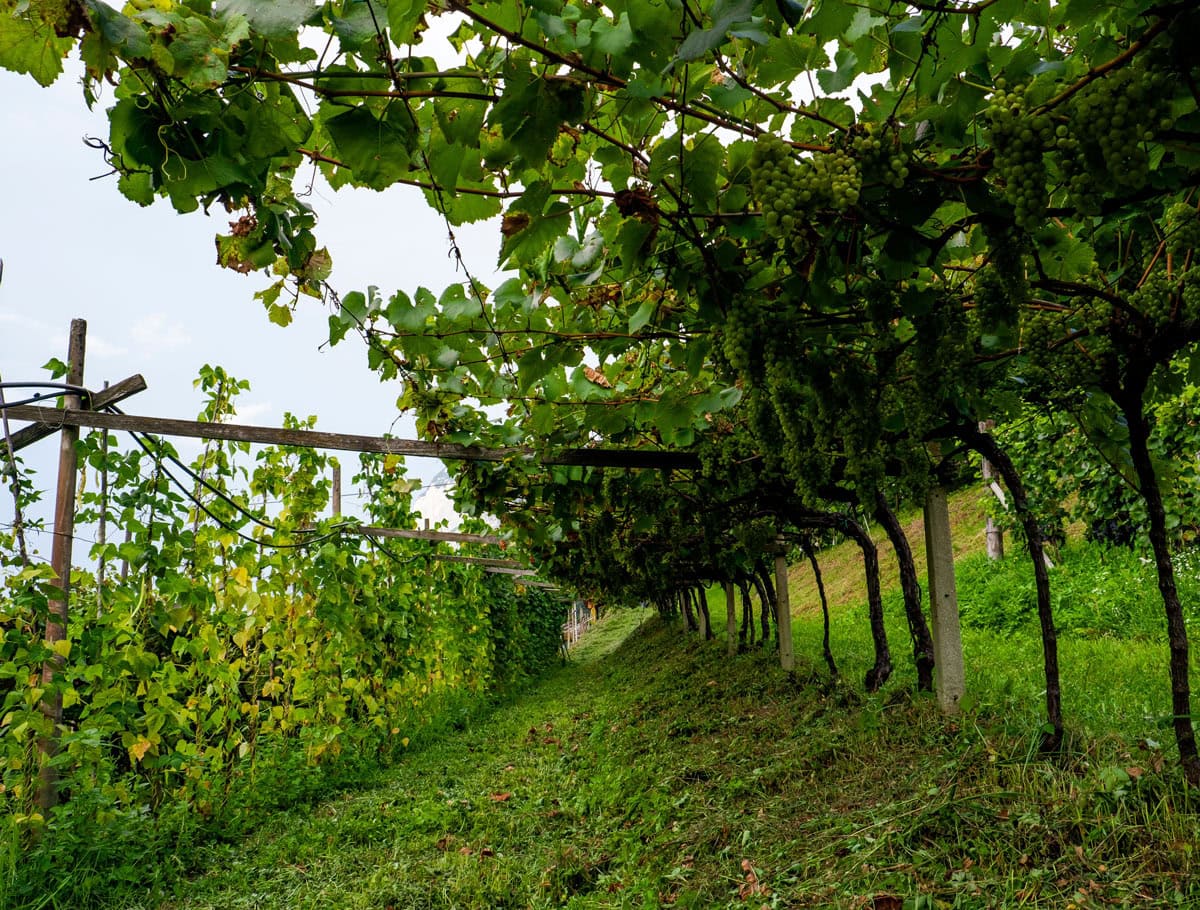 The leap in quality of the new Piwi wines across 15 labels
The leap in quality of the new Piwi wines across 15 labels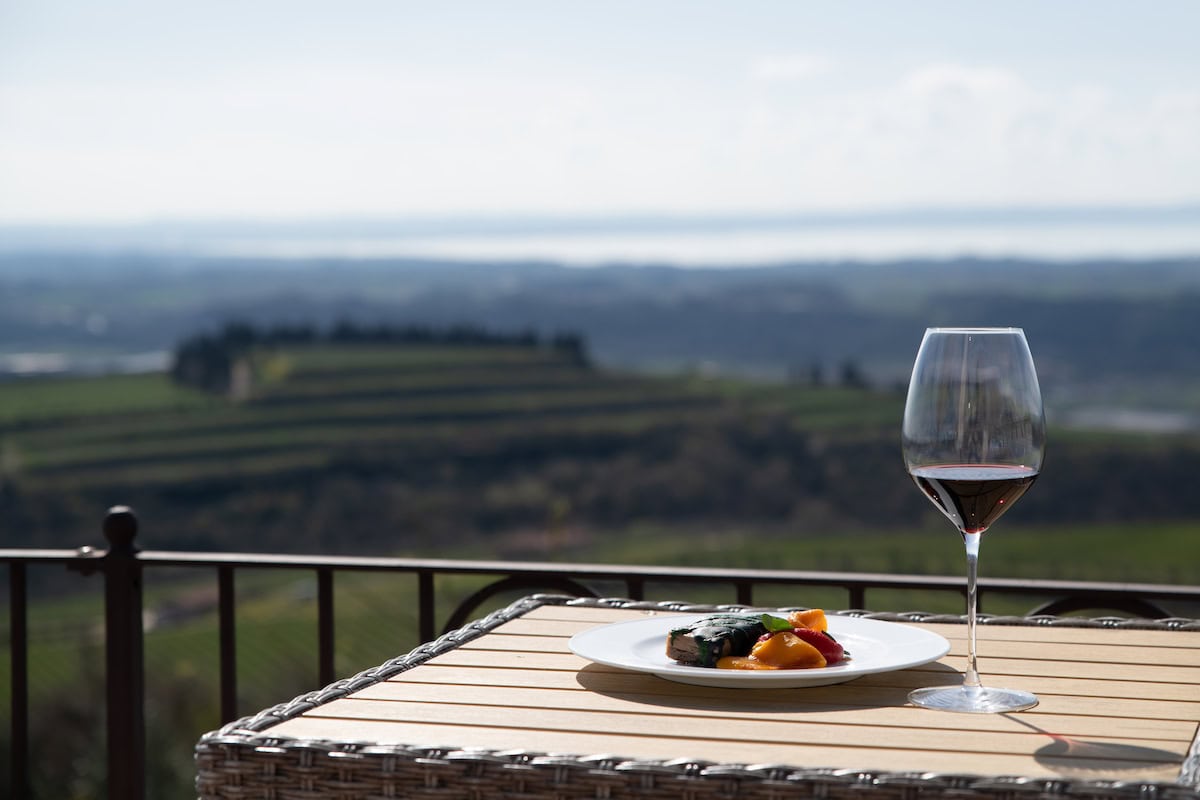 Valpolicella welcomes back one of its most iconic wines: rebellious yet loyal, Grola returns to the DOC
Valpolicella welcomes back one of its most iconic wines: rebellious yet loyal, Grola returns to the DOC